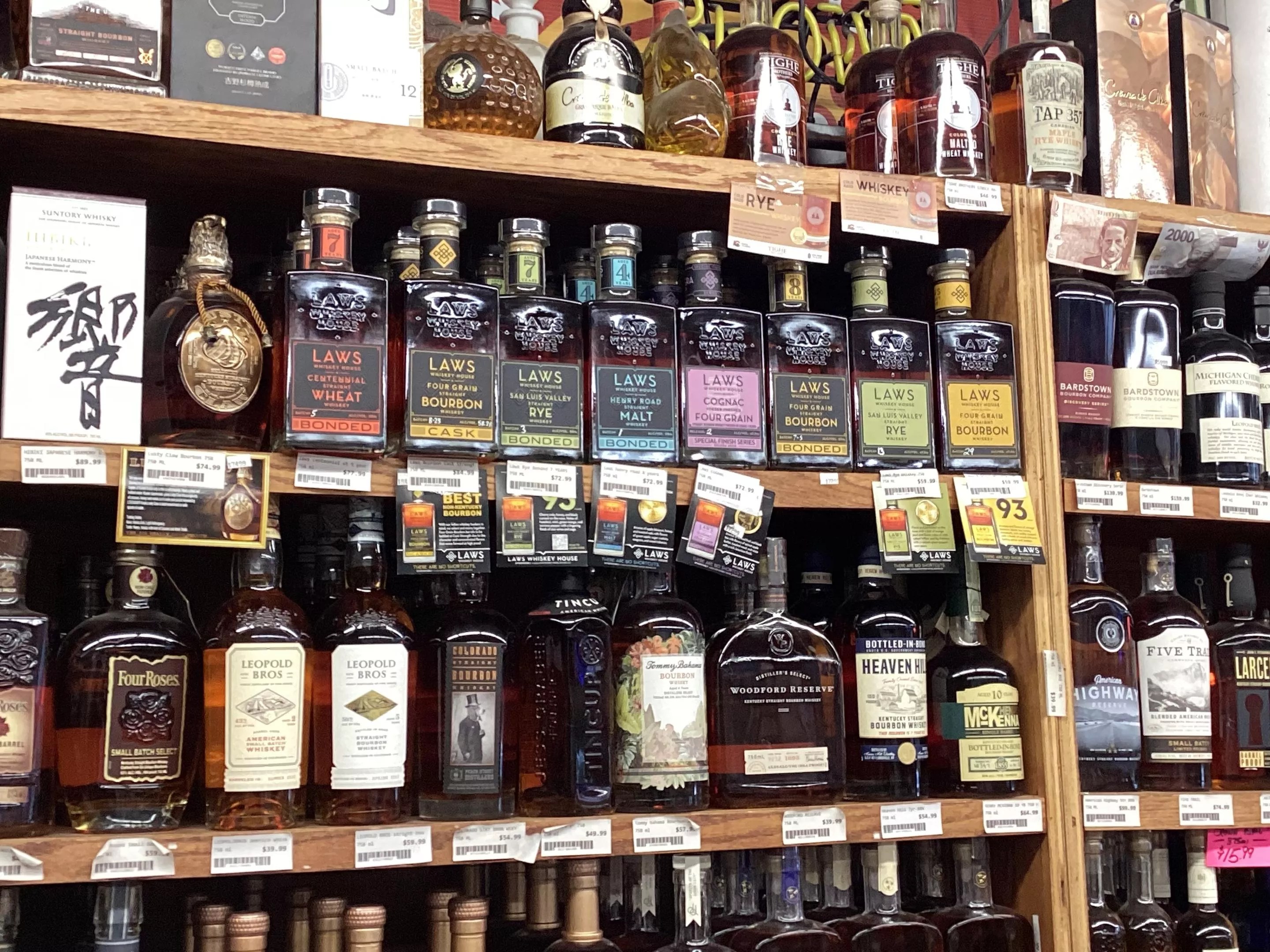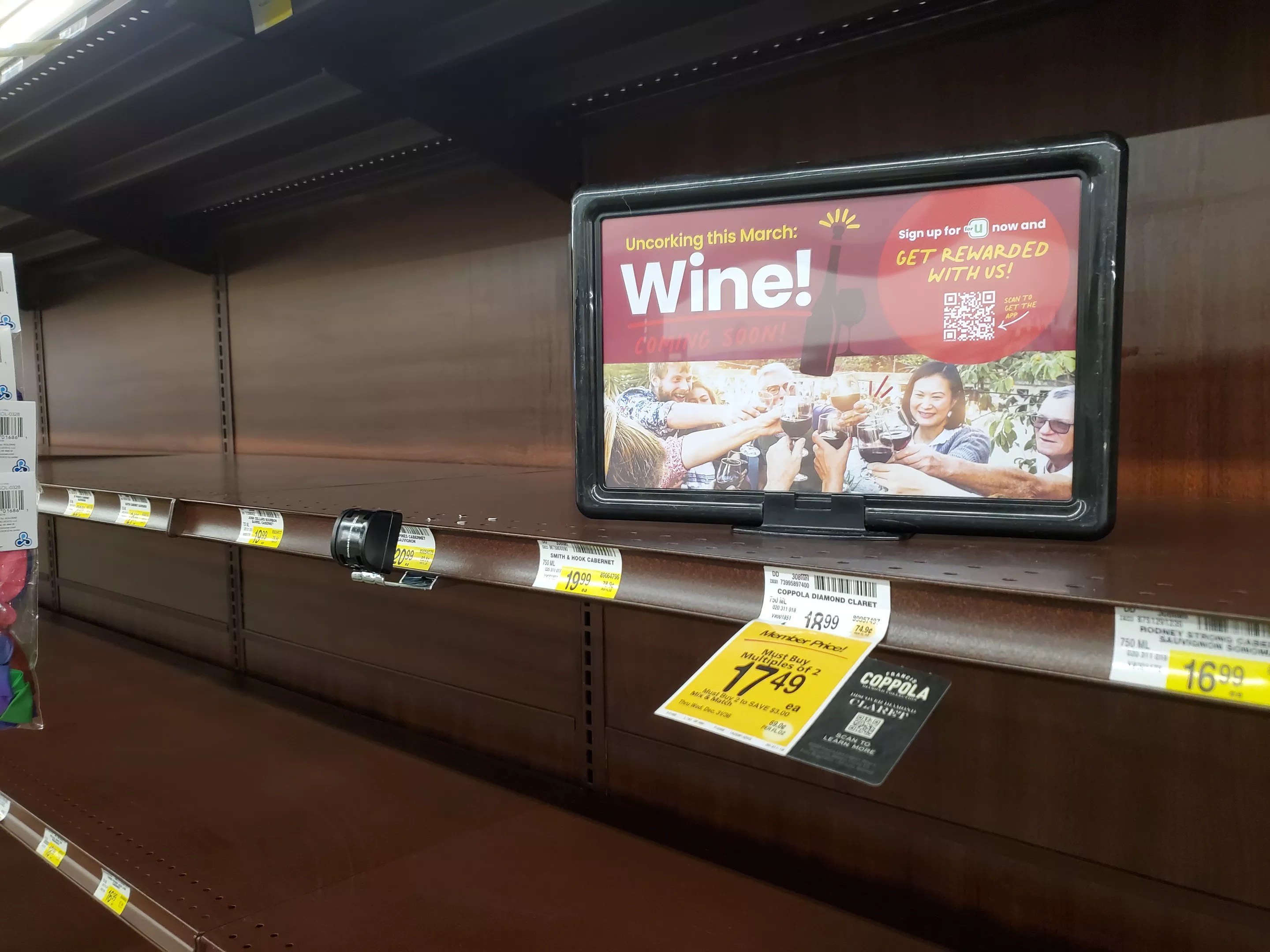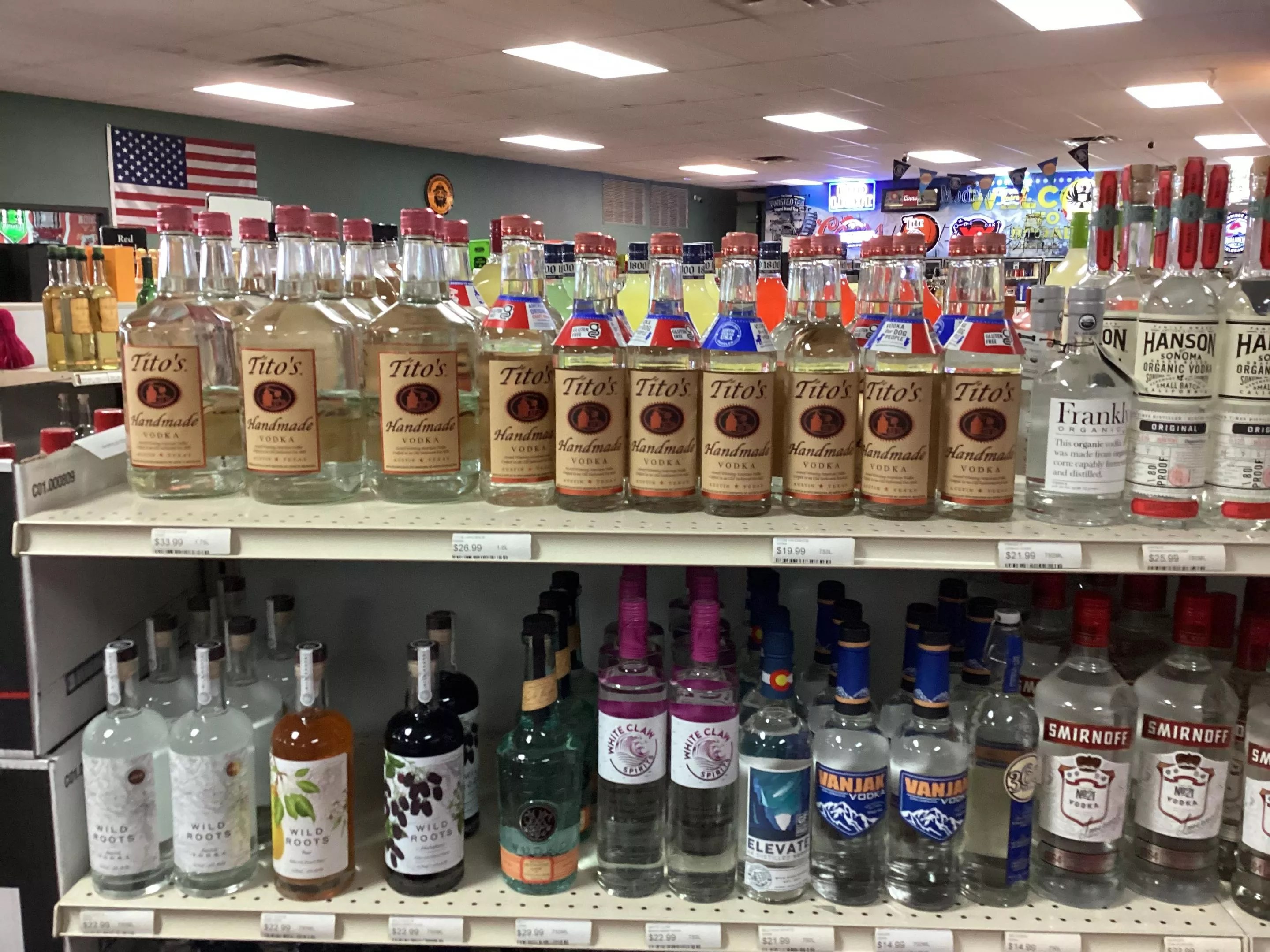
Molly Martin

Audio By Carbonatix
Colorado’s liquor laws may be changing once again. House Bill 1373 aims to help independent liquor stores, which have struggled since the sale of wine in grocery stores went into effect on March 1, 2023.
The state’s liquor laws used to tip the scales in favor of independent liquor stores and craft breweries. Prior to 2016, liquor license holders were only allowed to operate one store in the entire state; grocery and convenience stores were limited to selling 3.2 percent ABV beer; and brewpubs were allowed to operate similarly to restaurants, with self-distribution rights and permissive on-premises and off-premises sales.
That meant that every liquor store in Colorado was an independently owned shop, and in many cases, these businesses intentionally chose to open close to shopping centers anchored by large grocery stores.
Many cite Colorado’s regulatory landscape as a primary reason that the state has one of the best craft brewery scenes in the country – not just because of relaxed craft brewery rules, but because each craft brewer had thousands of liquor store owners to sell to.
“In almost ninety years, nothing changed. And then a whole shitload of stuff changed in about 48 months,” says Matt Dinsmore, who has been managing partner at Wilbur’s Total Beverage in Fort Collins for 25 years.
The Colorado Liquor Wars
Beginning in the 1980s, grocery store chains began pushing to modernize Colorado’s alcohol regulations, starting with the 1982 Colorado Amendment No. 7, which was soundly defeated 35-65.
But it spooked independent liquor store owners. So when there were rumblings of another ballot proposal, the group decided to strike a deal and support Senate Bill 16-197, dubbed the 2016 Great Compromise.
“There was so much pressure that [independent liquor store owners] were going to get steamrolled if we didn’t compromise and work something out so that we wouldn’t get decimated,” says Bruce Dierking, co-owner of Hazel’s Beverage World in Boulder. “What we were afraid of is that if there was a sudden overnight shift in these laws and rules that we had all built our businesses around, that we would get decimated.”
The 2016 Great Compromise allowed grocery stores to sell full-strength beer and gradually increased the cap of liquor licenses from one to twenty locations in phases over the next twenty years. In return, grocery stores agreed that if a location wanted a liquor license, it would have to purchase the liquor license of any existing stores within a 1,500-foot radius.
The intention of the bill was to set forth a plan for a controlled, gradual transition to open competition in Colorado’s liquor industry. “The idea was a long, slow rollout that let [owners] recover their investments. And if they wanted to sell to a grocery store, they could, but they didn’t have to. And if they wanted to stay there forever, that [grocery] store within 1,500 feet would never get wine and spirits,” explains Dierking.
But in August 2022, the Colorado Secretary of State announced that three liquor propositions would make it onto the November ballot. The propositions sought to remove the liquor license cap after 2037; allow grocery stores to sell wine; and relax restrictions for third-party alcohol delivery. The top donors in support were InstaCart, DoorDash, Whole Foods, Albertsons and Kroger, which contributed a total of $14.6 million.
The corresponding opposition organized under the Keeping Colorado Local committee and received total contributions of $903,000, equaling a spending ratio of sixteen to one.
Although Propositions 124 and 126 were defeated, Proposition 125: Wine Sales in Grocery and Convenience Stores Initiative, squeaked its way to victory with 50.58 percent of the votes.

Shelves at a Safeway store in Denver were cleared and ready to be filled with wine on the morning of March 1, 2023.
Molly Martin
How has wine in grocery stores affected liquor stores in Colorado?
Since Proposition 125 went into effect last year, consumers have embraced the convenience of picking up wine during grocery runs. The financial effects on independent liquor stores were felt immediately. Dinsmore, who is also the president of Colorado Independent Liquor Stores United (CILSU), estimates that over the last year, more than eighty liquor stores have closed.
As liquor stores go under, craft breweries are also starting to feel the squeeze. “For craft brewers, King Soopers won’t make an appointment [with them], much less carry them,” explains Dinsmore. “So these independent liquor stores fail and these craft brewers all of sudden don’t have as many outlets to sell their products into.”
Christopher Howes, president of the Colorado Retail Council, whose members are large grocers and big-box stores, believes that the war-like dynamic is overblown. “I think we’ve all traveled around the country. … We see liquor stores near a grocery store that sells wine and beer and spirits, so we can co-exist,” he says.
What is House Bill 1373: Alcohol Beverage Retail Licensees?
“I don’t want to see the independent liquor stores put out of business. They are owned by diverse entrepreneurs – 50 percent are women- and minority-owned businesses – and provide jobs,” explains Representative Judy Amabile, a co-sponsor of HB-1373. “They also carry boutique brands that chain grocery stores don’t carry…[which] need independent liquor stores to help them scale up and get their brands in front of consumers.”
She’s clear, though, that HB-1373 does not “undo” Proposition 125. “Nothing in the bill is going back on the voters’ decision to allow wine in grocery stores, but the grocery stores’ decision to put wine all over the store – on end caps, in the produce department, with the Easter candy, at the cash registers – isn’t what the voters thought they were getting,” Amabile explains.
The bill will require grocery stores to display alcoholic beverages for sale in a single location, which opponents of HB-1373 label as government overreach. “The liquor enforcement department of the state already has promulgated rules around how it can be sold, where it can be sold. So it’s not like a Wild West in these stores,” says Howes. “We just want to make it convenient. … If you’re picking up some cheese and there’s some wine next to it because that’s what people want, they don’t want to walk across the entire store.”
In addition, it bars sales of fermented malt beverages greater than 14 percent ABV and wine greater than 17 percent ABV, essentially eliminating spirits from grocery stores’ inventory.
Existing grocery stores that did buy out liquor licenses from nearby stores in the past would be converted to beer and wine licenses. “The big chains broke the Grand Compromise and caused this massive, sudden market disruption because they eliminated the 1,500-foot radius that they had promised. … So they don’t get to take back what they gave and keep what they got,” says Dierking. “So 1373 says they’re not going to get to have [spirits].”
The bill also contains sections on lifting the existing $2,000 cap on the amount of alcohol that liquor stores can sell and deliver to restaurants, as well as clarifying that wholesalers cannot discriminate when selling to retailers by, for example, providing free merchandising labor and discounted prices to larger chain stores.

Some grocery stores may have to give up their spirits selection if HB-1373 passes.
Molly Martin
Who supports and opposes HB-1373?
Supporters of the legislature include mom-and-pop liquor stores as well as the United Food and Commercial Workers International Union (UFCW), small business groups and local chambers of commerce such as the City of Glenwood Springs, Durango, Steamboat Springs, Summit County and the Rocky Mountain Chamber, as well as the Colorado Craft Brewer’s Guild.
On April 5, as HB-1373 went in front of the Business Affairs and Labor Committee, the CILSU organized a rally on the west steps of the Colorado State Capitol to show its support.
Opponents of the bill include grocery store chains, the Colorado Beer Distributors Association, several chambers of commerce, Teamsters Local Union No. 455, the Colorado Distillers Guild and the Wine Institute. They see HB-1373 as a direct rebuke of the voters’ wishes in passing Proposition 125. “If this bill were to pass, we would no longer be able to deliver that kind of convenience and low prices for spirits. … We’ve made such progress in the last fourteen years in Colorado,” says Howes. “This would send us backwards.”
Representatives for Walmart, Target and Albertsons declined to comment.
Some also belive that HB-1373 sidesteps the work done by the Liquor Advisory Group formed by Governor Jared Polis in July 2022. “HB-1373 creates a distraction and unnecessary war among the differing interests of the alcohol industry and disregards the time and resources invested in the extensive stakeholder process that occurred over the course of last year,” says Colorado Chamber of Commerce President and CEO Loren Furman. “This work resulted in a comprehensive report, with the intent of finding consensus among the many interests in the alcohol industry, which involved small and large liquor stores, beer and liquor manufacturers, retailers, distributors, business organizations and local entities, among others. Any legislation addressing these issues should take this work into consideration.”
Will HB-1373 save independent liquor stores in Colorado?
For many liquor store owners who face a balance sheet awash in red or have already shuttered their businesses, HB-1373 is too little, too late. “Thirteen-seventy-three will have basically no impact on small family-run businesses. … It won’t have a big enough impact that’s going to help some small liquor store who’s trying to decide if they’re going to stay in business,” says the owner of one liquor store that recently closed its doors. “I think it’ll just be a drop in the bucket, but hopefully not. I mean, I hope that it works for some when it didn’t for us.”
Even the staunchest supporters of the bill admit this is a small step in protecting these small business owners: “It’s not like this will get us back to where we were at all,” says Dierking. “It just gives us a little bit of hope to survive for the future. That’s what 1373 is really about. Are we going to give the independent liquor stores any hope at all, or should we just put a nail in their coffin right now?”
What are the next steps for HB-1373?
After passing the House Business Affairs and Labor Committee by a vote of 6 to 5 on April 5, it was heard by the House Finance Committee on Thursday, April 11. The hearing stretched long into the night, with more than four hours of testimony alternating between panels of supporters and opposers.
Despite Chair Marc Synder’s best efforts to warn the witnesses that the Finance Committee most directly cares about the economic and consumer impact, the session largely rehashed testimony from the first Business Affairs Committee hearing.
Almost no part of the bill was unchallenged by opposers, from the barring of liquor to the merchandising regulation to the distributor anti-discrimination statute. At long last, the bill passed the committee by a vote of 7 to 4, though several of the supporting members stated on the record that they were, “Yes, but only for tonight,” urging the sponsors of the bill to considerably rework it before it was presented to the floor.
Representative Matt Soper gave his support with ominous foresight. “We seem to be in the middle of a multi-year alcohol war between the legislature and ballot initiatives. … This bill, if it randomly makes it through the session and the governor’s desk, I mean, who knows – there’s fifty ways to kill a bill, just like Paul Simon said there’s fifty ways to leave a lover,” he said, laughing. “But [even] if it does, I guarantee you that it will continue, that the alcohol wars don’t end here.”
The bill will move next to the Appropriations Committee. That hearing is set for April 25.